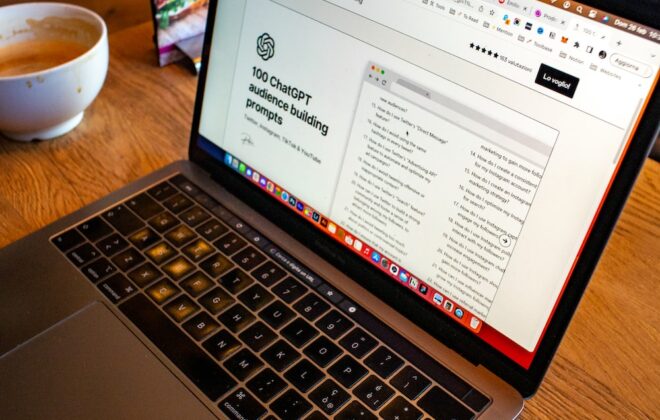
Telephone Interviews – How To Succeed
Sometimes, telephone interviews are more difficult than face-to-face interviews. Why is that?
They are more difficult because we rely on reading people’s body language. Clearly we can’t do this during a telephone interview! This makes it hard to gauge if your answer is on the right track. However, you can listen out for cues. If the interviewer uses words like ‘great’ or ‘excellent’ after your answer, it generally means you’ve done well. Though, there are some recruiters and HR managers that will use these words even if your answer was not what they were after. In this case, you can always ask ‘Did that answer your question?’
There are two types of telephone interviews:
Job interview screening calls.
Page Contents
Interview screening calls take about five minutes. HR managers and recruiters conduct job interview screening calls to check:
(a) Your PR status
(b) Your communication skills. Do you have a thick accent or poor communication skills? This may count against you if the job you applied for requires good English. They’ll usually test your speaking skills by asking, ‘Can you tell me about yourself?’
(c) Details in your resume. Some interview screening calls will test your resume knowledge. They will try and catch you out by asking something specific such as ‘tell me more about how you reduced costs by 18% at IBM?’ If you can’t answer…you’re in trouble!
Formal telephone interviews.
An informal telephone interview can take between 20 – 40 minutes. This is where they will call and say “You presented a strong application and I’d like to arrange a telephone interview with you”. If they ask if you’re available now, it’s better to say “I’m just about to go into an appointment, can I call you back in an hour?” This gives you precious time to prepare!
Formal telephone interviews are similar to face to face interviews in that you will have to answer a mix of technical and behavioural interview questions. It’s critical to prepare for this interview in the same was you would for a face-to-face job interview.
How to succeed in your telephone interview – the basics.
- Answering the call: If you don’t recognise the number always answer your phone in a professional manner, such as, ‘Hello, Naren speaking.’
- Voicemail: Set up a professional voicemail in case the interviewer can’t reach you e.g. “Hi, you’ve called Naren. Sorry, I can’t take your call right now. Please leave a message and I’ll get back to you soon.”
- A quite room: Take the call in a quiet area. Never answer your phone in a shopping centre or where it sounds ‘unprofessional’. Driving is OK as long as you have hands-free. Taking the call while driving is a good way to buy time. You can say “I’m just driving home now, can I call you in a half an hour?”
- Resume and job ad: If you’ve managed to buy time and return the interviewer’s call at a later time, make sure you have your resume and the job ad in front of you when you call back so you can refer to them.
- Smile and show enthusiasm. You can tell when someone is excited or smiling on the other end of the line. Smile and be positive when you’re talking to a recruiter or employer.
- Find out more: It’s rare that you apply for one job and get a phone interview request for that one job. Often, you’ve applied for 50 jobs! So when you get a call – how do you know which job it is? Before responding to any questions, it’s important to know which job it is. You must find out which company/job it is. You can simply say “Sorry, could you tell me again which position this is regarding as I applied for several roles during the week and just wanted to double-check – thanks”.
Telephone interview strategies.
- Elevator pitch: Be prepared to answer the first question “Can you tell me a bit about yourself?” This is your 45-second elevator pitch to summarise your skills, background and expertise
- Listen: It’s important not to interrupt the interviewer and listen carefully to their questions. I find it useful to take notes when they are asking a question. For example, if they ask “Can you tell me a time where you had to performance manage a staff member?” I’d write down the keywords ‘performance manage’ and ‘staff member issues’. It’s normal to forget the question during your answer! By writing down these keywords – you can remind yourself.
- Answer structure: This is the most important part. Every answer you give should be structured. Here’s how you can structure your interview answers:
- Introduction: Start by acknowledging the question “Sure, there are a few examples that I can think of when I’ve had to troubleshoot a problem/help clients/resolve a technical issue.”
- Example: “One example is when I was working as an A at company B on project C. I was working on D when we realised the E was happening. I took Faction which resulted in G.”
- Conclude: “This is one example I have working as an A where I performed/resolved/managed X, Y and Z.”
Final thoughts:
Phone interviews are tough and you need to perform well to secure a face to face interview.
Remember the basics listed above and then focus on getting your answer structure right. I can’t stress how important it is to be a storyteller in your interview. That’s what interviewers want to hear. Stories, examples and evidence that you have the experience that demonstrates that you can do the job that they are advertising.
I wish you well at your next job interview in Australia.
Best wishes,
Naren, Career Coach, Career Success Australia




